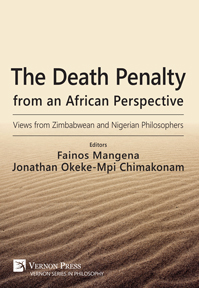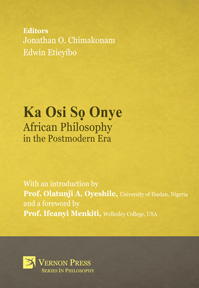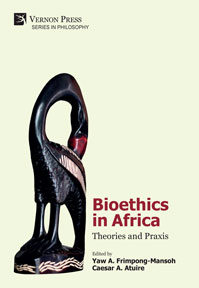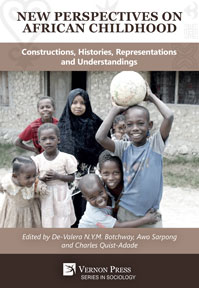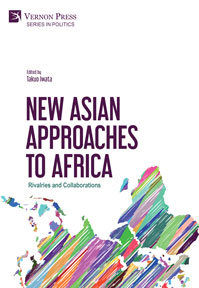African Literature, Mother Earth and Religion
Enna Sukutai Gudhlanga, Josephine Muganiwa, Musa Wenkosi Dube (Eds.)
by Josephine Muganiwa (University of Zimbabwe, Zimbabwe), Musa Wenkosi Dube (University of Botswana, Botswana), Tinyiko Maluleke (University of Pretoria, South Africa), Paul Lekholokoe Leshota (National University of Lesotho, Lesotho), Keketso Christina Sepere (National University of Lesotho, Lesotho), Rosaleen Oabona Brankie Nhlekisana (University of Botswana, Botswana), Dinah Kereeditse Itumeleng (University of Botswana, Botswana), Angeline Mavis Madongonda (Zimbabwe Open University, Zimbabwe), Nicole Ashwood (World Council of Churches, Just Community of Women and Men, Geneva), Melania Mancuveni (Zimbabwe Open University, Zimbabwe), Sarah Yeukai Matanga (Zimbabwe Open University, Zimbabwe), Ivy Musekiwa (University of Botswana, Botswana), Annalet van Schalkwyk (University of South Africa, South Africa)
Purchase this book
(click here to change currency)
This book is a collection of essays that explore the intersection of Earth, Gender and Religion in African literary texts. It examines cultural, religious, theological and philosophical traditions, and their construction of perspectives and attitudes about Earth-keeping and gender. This publication is critical given the current global environmental crisis and its impact on African and global communities. The book is multidisciplinary in approach (literary, environmental, theological and sociological), exploring the intersection of African creative work, religion and the environment in their construction of Earth and gender. It presents how the gendered interconnectedness of the natural environment, with its broad spirituality and deep identification with the woman, features prominently in the myths, folklores, legends, rituals, sacred songs and incantations that are explored in this collection.
Both male and female writers in the collection laud and accept woman’s enduring motif as worker, symbol and guardian of the environment. This interconnectedness mirrors the importance of the environment for the survival of both human and non-human components of Mother Earth. The ideology of women’s agency is emphasised and reinforced by ecofeminist theologians; namely those viewing African women as active agents working closely with the environment and not as subordinates. In the context of the environmental crisis the nurturing role of women should be bolstered and the rich African traditions that conserved the environment preserved. The book advocates the re-engagement of women, particularly their knowledge and conservation techniques and how these can become reservoirs of dying traditions. This volume offers recorded traditions in African literary texts, thereby connecting gender, religion and the environment and helpful perspectives in Earth-keeping.
List of figures
Acknowledgements
Preface: Going back to the first sentence of our childhood … once upon a time
Tinyiko Maluleke
University of Pretoria, South Africa
Introduction: Creative art, gender and religion as mitigatory agents to the global environmental crisis
Enna Sukutai
Zimbabwe Open University, Zimbabwe
Josephine Muganiwa
University of Zimbabwe, Zimbabwe
Musa Wenkosi Dube
University of Botswana, Botswana
Section A: The woman, environmental conservation and folk art
Chapter 1 Of water, reeds and fertility: interrogating the place of a woman in Sesotho folklore
Paul Lekholokoe Leshota
National University of Lesotho, Lesotho
Keketso Sepere
National University of Lesotho, Lesotho
Chapter 2 Exploring women’s nurturing nature motif in selected Setswana folktales
Dinah Kereeditse Itumeleng
University of Botswana, Botswana
Rosaleen Oabona Brankie Nhlekisana
University of Botswana, Botswana
Section B: Mother as metaphor: representations of the earth and the natural environment
Chapter 3 Mother nature: friend or foe? Representations of women and nature in Musaemura Zimunya’s poetry
Josephine Muganiwa
University of Zimbabwe, Zimbabwe
Chapter 4 Wreaking Mother Earth: environmental intrusions and land dispossession in Musaemura Zimunya’s Kingfisher, Jikinya and other poems (1982)
Angeline Mavis Madongonda
Zimbabwe Open University, Zimbabwe
Enna Sukutai Gudhlanga
Zimbabwe Open University, Zimbabwe
Section C: The environment and spiritual connection
Chapter 5 A return to the source: (grand) mothering the environment, psycho-social support in Yvonne Vera’s Under the tongue (1996)
Enna Sukutai Gudhlanga
Zimbabwe Open University, Zimbabwe
Angeline Mavis Madongonda
Zimbabwe Open University, Zimbabwe
Chapter 6 River Mumma: an exploration of Jamaican ecofeminist spirituality
Nicole Ashwood
World Council of Churches, Just Community of Women and Men, Geneva
Section D: Contemporary society and Mother Earth
Chapter 7 Zimbabwean mother and Mother Earth: an analysis of selected Shona songs
Melania Mancuveni
Zimbabwe Open University, Zimbabwe
Sarah Yeukai Matanga
Zimbabwe Open University, Zimbabwe
Chapter 8 Mother Earth, mother Africa and land in contemporary Zimbabwean women writers in the works of Dangarembga, Tagwira and Bulawayo
Ivy Musekiwa
University of Botswana, Botswana
Chapter 9 The sublime in the ecology: an ecofeminist theological interpretation of an Eastern Cape artist’s ecological vision, spirituality and identity
Annalet van Schalkwyk
University of South Africa, South Africa
List of contributors
Index
Enna Sukutai Gudhlanga holds a Doctor of Literature and Philosophy in African Languages from the University of South Africa. She is an Associate Professor and Chairperson of the Department of Languages and Literature at Zimbabwe Open University. Her research interests are gender in literary and cultural studies. Gudhlanga holds certificates in Gender Mainstreaming from OSSREA, CODESRIA and UNIDEP. She is also a research fellow at the University of South Africa and is a member of the Circle of the Concerned African Women Theologians.
Josephine Muganiwa is a Senior Lecturer in the Department of English (University of Zimbabwe) and expert in African and European literatures. Her research interests include gender, religion, and culture in literature. She holds a Doctor of Literature and Philosophy (English) from the University of South Africa and certificate in Gender Mainstreaming from OSSREA. She is also a budding scholar of the Circle of the Concerned African Women Theologians.
Musa Wenkosi Dube is a Professor of New Testament Literature in the Department of Theology and Religious Studies at the University of Botswana. She is a Humboldtian awardee (2011) and is the current continental Coordinator of the Circle of Concerned African Women Theologians (2019-2024). Dube holds a PhD in New Testament Studies from Vanderbilt University, USA. Her research interests include gender, postcolonialism, translation, and HIV and AIDS studies. Her research has been supported by awards from the John Templeton Foundation and the National Institutes of Health among others. Dube is the 2017 winner of the international Gutenberg Teaching Award. She is also a research fellow at the Department of Religion and Classical Studies, University of South Africa. She has consistently researched and published on gender and religion.
Mother Earth, Environmental Crisis, environmental crisis, Religion and the Environment, Creative Literature and the Environment, Postcolonial studies, Gender Studies, Ecofeminism, African Women Writers
Subjects
Sociology
Language and Linguistics
Series
Series in Literary Studies
Related services
Find in a library near you Download HQ cover Find in Bookshop.org Find this title in AmazonSee also
Bibliographic Information
Book Title
African Literature, Mother Earth and Religion
ISBN
978-1-64889-453-4
Edition
1st
Number of pages
220
Physical size
236mm x 160mm

![African Literature, Mother Earth and Religion [Paperback]](/file/17364/5b36127f6680b0390a709bf4cf3c8341/1651838535.jpg)

